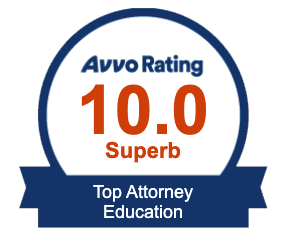It is important to note that parents have the right to request an Individualized Educational Program (IEP) meeting at any time. The IDEA, which is the federal law that governs special education rights for parents and children, states that the school district must devlelop, review, and revise, if appropriate, your child’s Individualized Educational Program (IEP) annually. This IEP must be in place before the beginning of the next school year. Some parents may believe that they are only entitled to attend only one IEP meeting a year. This is not correct. At the annual IEP meeting, committee members discuss the child’s educational progress, goals and objectives, related services, accommodations, placement and other issues germane to the review, development, and revision of the child’s IEP. But parents are free to request an IEP meeting at any time to discuss any concerns with the school staff and IEP committee members. Some parents request IEP meetings during the school year at regular intervals, e.g. every three or four months. Some parents only attend an annual IEP meeting. In some cases, parents request IEP meetings almost every month during the school year. Whether it is appropriate to request one, two, three or more IEP meetings during a school year, if course, depends upon the unique circumstances of your child’s special education instruction, services, placement, and program.
At an annual IEP meeting, the IEP committee will review your child’s educational progress during the school year. Sometimes this phase of the annual IEP meeting superficially examines the child’s educational progress during the school year. This phase of the IEP meeting, however, is a valuable opportunity for parents to ask questions concerning their child’s educational progress. For example, parents can ask what assessments, tests, and measurements were used to determine whether your child made educational progress on his IEP goals and objectives. In Georgia, for example, the school system may say that we do not need to give your child a “Cadillac” but only a “Chevrolet.” This means that the school system does not have to maximize your child’s educational performance but only provide what is appropriate or adequate. What is appropriate or adequate? This means that your child must make more than trivial educational progress. It must be measurable. If a goal or objective can be measured objectively, then the school system should be able to provide data, test scores, and other assessments that can give you an objective measurement of educational performance. Thus, it is easy for educators to say that your child is making educational progress. This is an opinion. It may be subjective. How do you measure whether your child is really making educational progress unless you can assess it objectively? There are some goals and objectives that can be informally and formally assessed by teacher observation only. In most cases, however, parents should insist that the IEP committee produce objective measurement of their child’s educational progress, or lack of such progress, during the school year.
In Georgia, you should receive report cards or other reports every nine weeks or other time frame when all students receive report cards. These progress reports will let you know your child’s educational progress on goals and objectives. You do not have to wait until the annual IEP meeting to find out how your child is performing in school. Periodic performance reports update parents on their child’ educational progress. If you are not receiving these written periodic reports about your child, then you should request at the annual IEP meeting or before such meeting that you receive copies of your child’s educational progress at periodic intervals during the school year.
You may find that the IEP and/or educational reports about your child state that there is ongoing progress on your child’s goals and objectives. In other words, there is no number, percentage, score or other measurement how your child at the time of the IEP meeting. Sometimes there is a valid reason why the school system cannot give you a score, number, or percentile because the school is continuing to work on your child’s goals and objectives and there is no current score, number, or percentile that can be given at that time. You should revisit those goals and objectives at future IEP meetings to ensure that there is an objective measurement of your child’s educational progress. The reason why it is so important to determine your child’s educational progress is because you cannot develop, revise, amend and effectively review your child’s IEP unless and until you know what, if any, educational progress your child is making on the stated IEP goals objectives.
Hope these tips are helpful when attending your child’s annual IEP meeting. Let me know what you think?

